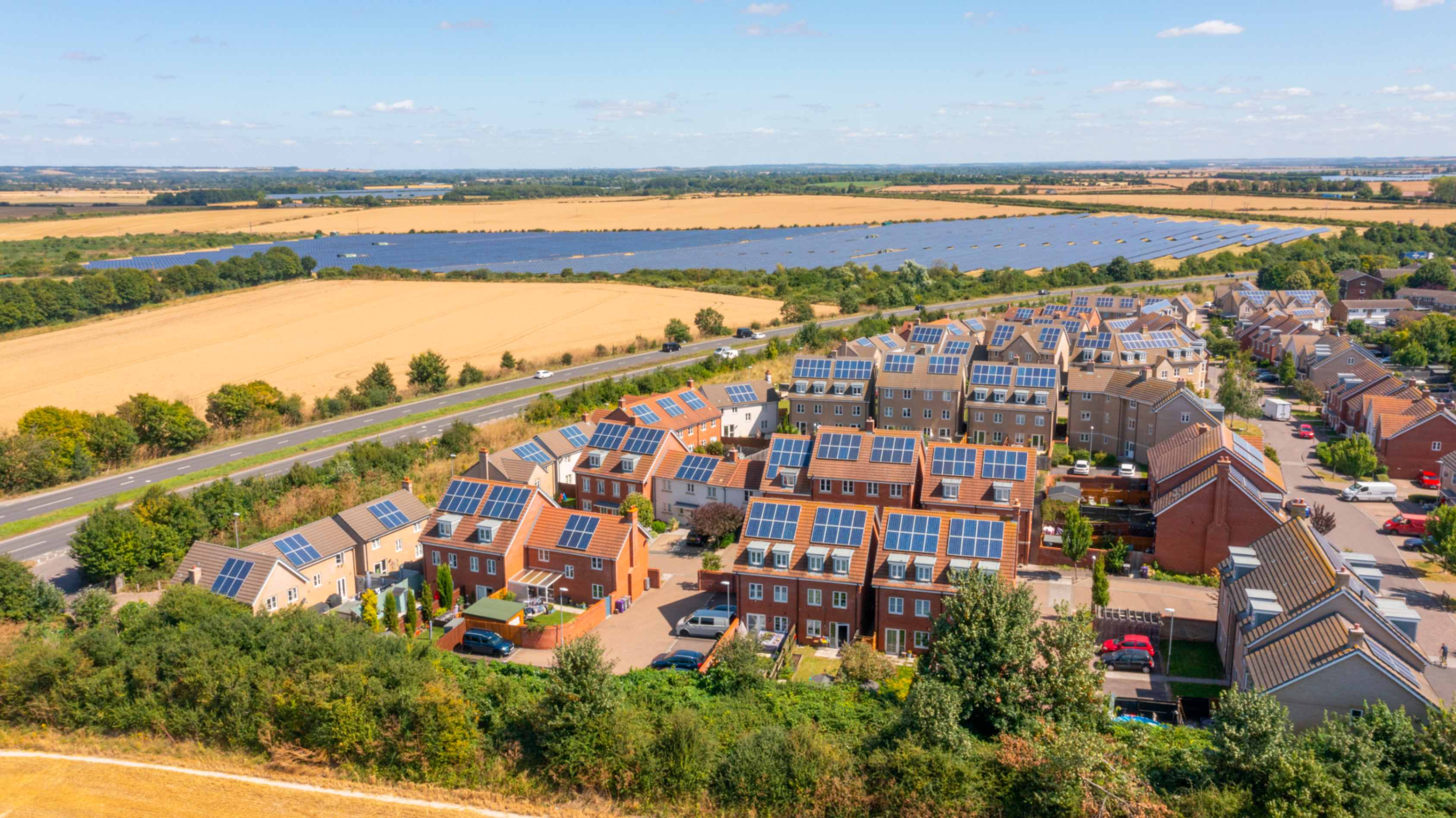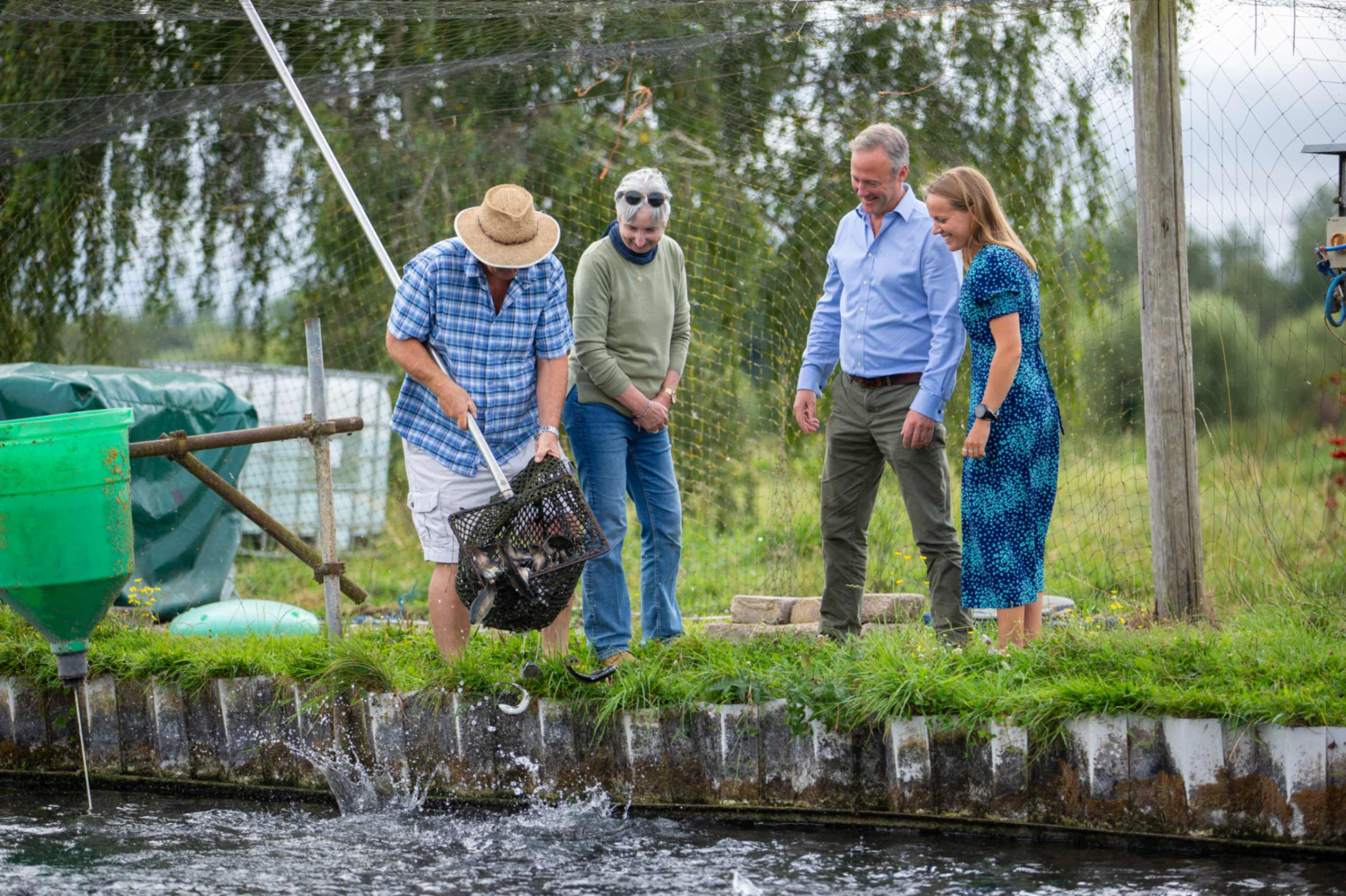Working with nature - how it can benefit all sectors
Businesses of all types can work with nature. Whether a legal requirement or part of a net zero strategy, we are working innovatively with clients to support their sustainability objectives
3 minutes to read
Generally, you get paid for doing something, like creating a product or offering some kind of service. But working with nature, sometimes the opposite is true.
For example, I am currently working with the owner of a trout farm in the south of England who is being paid a significant sum of money to stop farming trout. In essence, I'm helping to shut down a perfectly legitimate business.
While that may seem strange, it makes sense if I explain a bit of the background to the deal.
Phosphates
Any housing or building development that takes place in one of England’s 27 freshwater Areas of Special Conservation must ensure that the scheme doesn’t increase the phosphate levels in local watercourses.
Given that the annual wastewater discharge from six to 10 new homes can contain up to 1kg of phosphates, this is obviously an issue for homebuilders.
They have two choices: mitigate the discharge on site, which is technically difficult and expensive to achieve completely, or pay using saved phosphate credits from another business that has stopped polluting.

With a housing shortage in the south of England, it is key that developers do not increase phosphate levels in local waterways.
In conjunction with analysis from our research analytics team, we can help identify innovative opportunities and create bespoke business solutions that deliver for the environment and our clients.
Fish farming
Under licence from the Environment Agency, the farm is allowed to discharge 350kg of phosphates into the Hampshire Avon each year.
By shutting down the business, 350 phosphate credits will be created (1kg of phosphate removed = 1 credit). This can then be sold to developers under a management plan and an approved Section 106 agreement by Natural England and the four local authorities covering the catchment area downstream of the farm.
Such is the demand from developers that we have already found buyers for 200 credits at a level that has not only generated a healthy, tax-efficient income for the client, but will potentially facilitate the construction of up to 4,000 much-needed new homes in the area.

Jamie Evans-Freke and Steph Small onsite at the trout farm which will shortly be closed to reduce pollution in local waterways.
Other opportunities
It’s not just stopping phosphate emissions that businesses can be paid for and where we are helping to broker deals. Similar schemes exist where nitrates are being discharged into marine environments such as estuaries.
In areas where there is a lack of water, developers are also having to pay businesses with irrigation licences to stop abstracting so that they can use the water instead.
Of course, there are a lot more nature opportunities that require landowners to actively create new habitats. Biodiversity Net Gain (BNG) is another requirement for anybody constructing new homes or commercial developments in England.
Biodiversity net gain
For every unit of nature destroyed during the development process, they must either replace it themselves or pay somebody else to recreate it, plus at least 10% more than has been lost.
Many farmers and landowners are creating BNG credits that can be sold to developers by changing the way they farm or manage their land, for example by creating species-rich grassland.
Creating BNG credits is a 30-year commitment so shouldn’t be taken lightly, but the returns can be more profitable than conventional farming.
These are just some of the opportunities to work with nature, and we expect the opportunities will only grow as the market for nature-based solutions develops.
If you're interested in exploring how nature may help towards your business goals, get in touch with Jamie, or click here to read more articles.